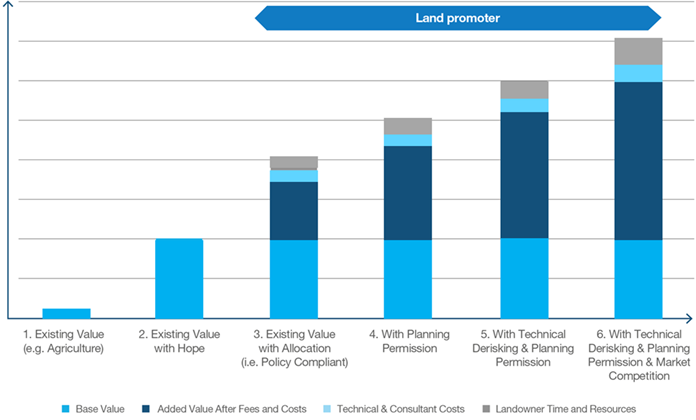
OUR
News & Blogs
31 Oct
Planning Promotion Agreements – the Keyland way
By Matthew Turnbull, Land & Planning Manager
Planning Promotion Agreements, or PPAs as they are often referred to, have become an increasingly common way for landowners to get the expertise and financial support they need to secure planning permission for development on land they own. Often a landowner has little or no knowledge of the planning system or needs financial input to promote their land and obtain planning permission.
So, what are PPAs and how do they work?
Planning Promotion Agreements
A Planning Promotion Agreement is a legally binding contract between the landowner and their partner – usually a land promoter such as Keyland. A PPA can be applied to any type of site, but they are typically used when securing planning permission is not straightforward and may take several years to achieve through the Council’s Local Plan preparation process and then after the submission of a complex planning application.
A land promoter like Keyland will support a landowner by committing to using our funding, experience, and expertise to secure planning permission on the piece of land – efforts which are at our own risk, since the landowner is not expected to provide any of the funding needed to progress through the site’s promotion or submission of a planning application. In return, the landowner will commit to selling the site once planning permission is secured, with Keyland taking a share of the sale price for the site.
There are numerous benefits to this approach for landowners:
Our interests are aligned: because our return is a share of the selling price for the site, our motivation is the same as that of the landowner – to maximise the value of the land. As the land promoter, Keyland only makes a return on our investment if we succeed, you can be certain we will be committed to securing planning permission.
Keyland funds the whole process: it does not cost the landowner anything – we even cover the legal costs for entering into the agreement in the first place. This means that if, for some reason, the promotion is ultimately unsuccessful, the landowner is not ever out of pocket.
The price of the site is determined via a competitive bidding process: once planning permission is secured, Keyland will put together a detailed information pack with as much information as is available and make it clearly accessible to all bidders before marketing the site for sale. Marketing sites in this way helps to secure the best possible value for the landowner.
Keyland take the hassle away from the landowner and will run the whole process: Keyland develop the planning strategy, appoint, and manage a consultant team, liaise with the Council, and negotiate the eventual sale of the site upon securing planning permission.
The landowner is always kept informed: Keyland will be open and transparent throughout the process. We keep the landowner informed on progress and be available to discuss the site from beginning to end.
The landowner will retain the use of their land: while we are working to try to secure planning permission, the landowner can continue using it for whatever they were using it for before.

The alternatives
The main alternative to a Planning Promotion Agreement is an Option Agreement, which is often used by developers to secure control of a site. Option Agreements give developers a fixed amount of time in which to secure planning permission and buy the site, usually at a discounted price.
While the motivation for Keyland through the PPA process is to maximise the sale price of the site, the motivation for the developer controlling the site via an Option Agreement is to minimise it.
Why Keyland?
We know that the process of promoting and selling land is not always easy, but at Keyland we work hard to give landowners peace of mind every step of the way, removing stress associated with the sale and providing confidence that the process is in the very best hands.
Do feel free to give us a call if you have land and would like to discuss your options for the future.